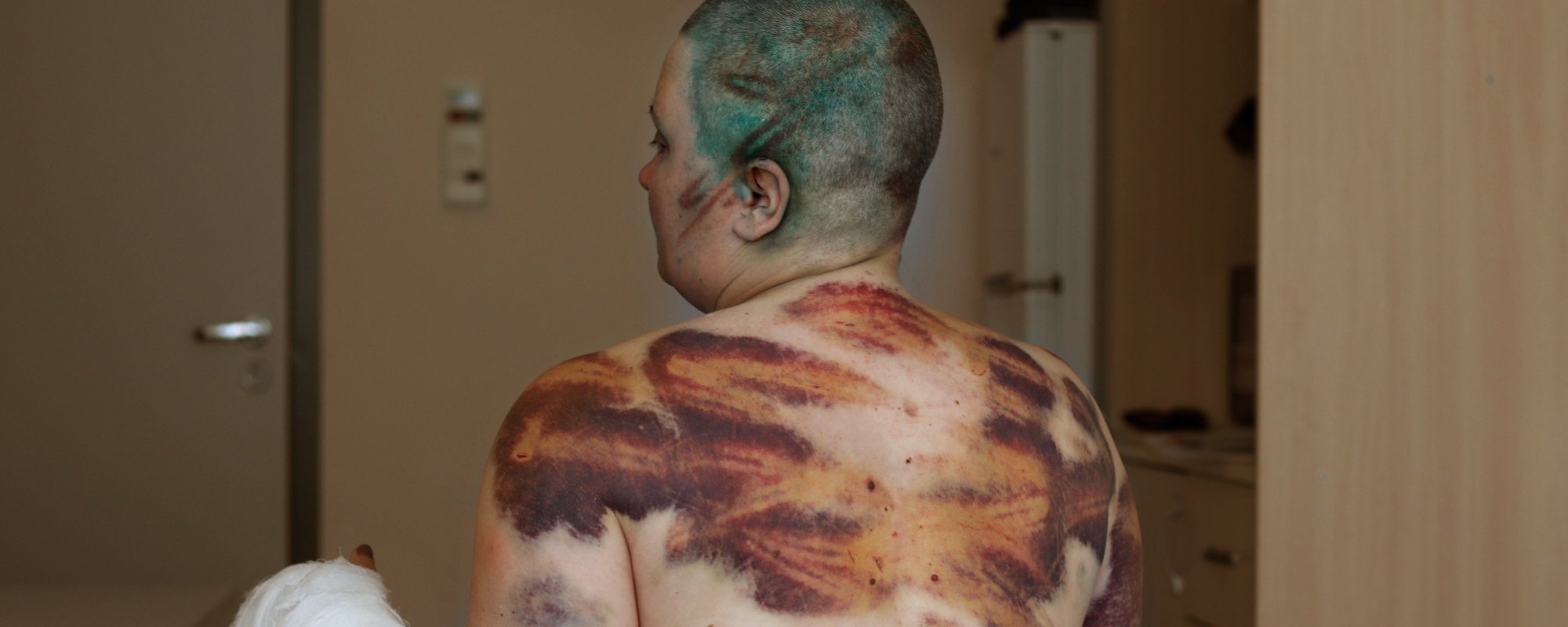OVD-Info covers the main news for July in our chronicle of political repressions — exerting pressure on academics and teachers, freezing anti-war activists’ bank accounts, and opening new cases under the articles on calls for extremist and terrorist activities.
Persecution for Anti-war Views


In July, Sergey Buyvol, the defendant in a case of «discrediting» the Russian army was sentenced to 3.5 years in prison for publications on social networks and resisting law enforcement officers during their raid. TikTok blogger Alexander Nemenok, also known as «Petya Benzobakov, ” was fined 400 thousand rubles for calling for terrorist activities with his anti-war videos.
Taxi driver Vladimir Zolotarev was sentenced to 18 years in prison for arson of the Russian National Guard office in Komsomolsk-on-Amur as a sign of protest against the war. Ivan Kudryashov, the defendant in a case of attempted arson in Tver Oblast, was hospitalized after a hunger strike. The attorney who visited him in the hospital said that Ivan could have become a victim of punitive psychiatry. According to the attorney, Kudryashov is immobile and doesn’t react to speech.
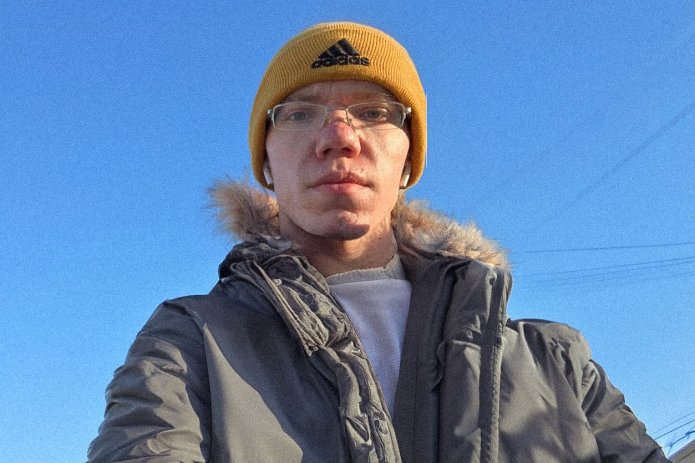
Solidarity Zone, a project supporting Zolotarev and Kudryahov, has had their accounts in Sberbank frozen this month. Anti-war activists and Alexander Shtefanov, author of a documentary titled Ordinary Denazification, reported their accounts being frozen as well.
OVD-Info updates infographics on the people who faced criminal prosecution for their anti-war views. Our Summary of anti-war repressions shows the development of anti-war persecution from June 22 to July 21.
Pressure on Academics and Teachers
The arrest of Boris Kagarlitsky, professor of the Moscow School of Social and Economic Sciences, became one of the most talked about events in July. The leftist sociologist and publicist was sent to, а pre-trial detention center as a suspect in the case of justifying terrorism in his publication about an explosion on the Crimean Bridge.
Despite his poor health, Evgeniy Bestuzhev, a political scientist and former staff member of the Higher School of Economics in St. Petersburg, continues to be held in a pre-trial detention center. OVD-Info has launched a petition in his support. A new police report was also drawn up against him under the article on separatism for a video of his earlier speech.
Mathematician Azat Miftakhov was declared a «malicious offender» in jail where he is serving time for breaking a window at an office of United Russia, a conservative political party in Russia. The conditions of his detention have since become stricter. A group in support of Miftakhov fears that he may face additional pressure as a new case unfolds in which he is assumed to be a member of «Network, ” an anarchist group declared by federal investigators to be a terrorist community.
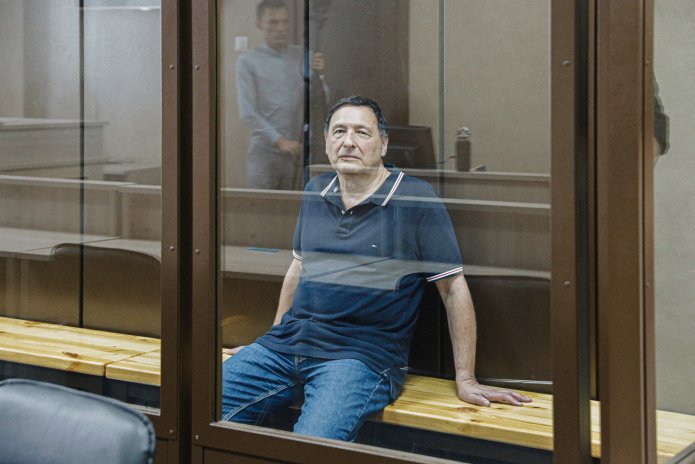
Politician and associate professor of the Moscow State University School of Mechanics and Mathematics Mikhail Lobanov was fired from the university and left Russia. The university claims that he was dismissed for having been included in the register of «foreign agents.» Politician Solomon Ginsburg was fired from the Kaliningrad branch of the Moscow University of Finance and Law. In June, the apartments of Ginsburg and Lobanov were searched as part of the case against a former deputy of the State Duma Ilya Ponomarev. Novgorod State University teacher Pavel Kolosnitsyn was not allowed to renew his contract after he was fined for «discrediting» the Russian army.
According to the Teachers’ Alliance, mathematics teacher Alina Abdullina was fired from a school in Naberezhnye Chelny after her solitary picket in support of Navalny. The «Novocollege» educational institution in Novosibirsk did not get its accreditation extended. Earlier «Novocollege» refused to open the «Important Conversations» class, and the Prosecutor’s Office inspected the institution after being accused of «propaganda about Russia’s defeat in the Special Military Operation.»
Repressive Lawmaking
Vladimir Putin signed two bills allowing unannounced inspections and fines for those who interact with «foreign agents.» After three readings, the State Duma adopted a bill introducing administrative and criminal liability for participating in «unregistered international NGOs.»
Moreover, a bill that introduces criminal liability for «public propaganda of extremist activity and its incitement» was submitted to the lower house of parliament. Another bill strips birthright citizenship from those convicted of crimes that pose a threat to national security — for instance, those accused of discrediting the Russian army. Three out of four authors of the second bill later withdrew their signatures from it.
The European Convention on Human Rights (ECHR) declared that the facial recognition system in place in Russian cities violates people’s right to privacy. In its decision, the court referred to the report titled «How the authorities use cameras and facial recognition against protesters» published by OVD-Info. Under international law, this requires Russia to abandon the use of this system. However, last summer, Vladimir Putin signed a bill that allows the Russian government to choose not to implement decisions of the ECHR adopted after March 15, 2022.
«Foreign agents» and «Undesirable» Organizations
«Foreign agents»


In July, the register of «foreign agents» was expanded only once: on July 21, politician Konstantin Borovoy, activist Pavel Sulyandziga, journalists Mikhail Kozyrev and Alexander Litvinov, the «7 × 7 — Horizontal Russia» publication, the Omsk Civil Association, the «Center T» human rights organization, and the «Right of Everyone» non-profit were added to the list.
In the meantime, three organizations were removed from the register: the Eurasian Antimonopoly Association, the Center for Social Information Initiatives «Action» and the «Law Zone» advocacy group. All of them had previously ceased their operations. Also, journalist Daniil Gubarev from Primorsky Krai was able to get the court to recognize his inclusion in the register as illegal. This was the first time an individual was able to successfully challenge his inclusion in the register in court.
«Undesirable» Organizations

Over the past month, the Prosecutor General’s Office has declared the Dozhd TV channel, the international network of Human Rights Houses, and two environmental organizations — The Altai Project and a center fighting for the conservation of the Pacific salmon — as «undesirable.»
Freedom of Speech
Cases of Calls to Terrorism or Extremism
In July, security forces continued to initiate cases for justifying terrorism and inciting extremism, and did so not only for posts on the Internet. For instance, Andrey Biryukov, a resident of Voronezh, became a defendant in a second criminal case in a row for justifying terrorism by speaking out about an explosion on the Crimean Bridge at a court hearing.
Ex-military officer Timofey Rudenko, who tried to fly out of Russia, also faced prosecution for justifying terrorism inhis statements about Dzhokhar Dudayev in a Telegram channel chat. A similar case was also initiated against a 17-year-old Omsk resident Mikhail P. for a joke about Vladimir Putin on social media.
Cases of the «Rehabilitation of Nazism»
In July, a sticker with the word «Bucha» memorializing a city in Ukraine where 1,000 civilians were killed by Russian soldiers on the Star of the Hero monument, a repost about the Russian military symbol the ribbon of St. George, a monument to a hero of the USSR covered in paint, and a comment «that could offend» the memory of a Russian soldier who died in Ukraine became grounds for initiating new criminal cases under the article on the rehabilitation of Nazism.
Cases of Insulting Feelings and Symbols
Law enforcement officers in Ulyanovsk Oblast opened a criminal case against an Egyptian citizen for a video of him trampling the Koran and throwing it into a river. Also, a Russian woman named Alena Agafonova became a defendant in a criminal case for desecrating burial places through her social media stories about the Motherland Calls monument in Volgograd. Crimea-based pro-Russian blogger Alexander Talipov drew attention to Agafonova’s stories.
Freedom of Assembly
Detentions at Rallies and Their Consequences
In July 2023, the authorities continued to detain the participants of rallies in support of protecting the environment, political prisoners, and against the inaction of officials. Specifically, the mother of a minor injured at work was detained in Moscow (she is trying to get the authorities to cover his medical bill); in St. Petersburg, the police detained a man with a poster saying «Freedom to Berkovich and Petriychuk;» and in Oryol Oblast they detained activists fighting against deforestation. A resident of Krasnodar Krai was fined under the anti-protest law for recording a video message to Alexander Lukashenko.
Refusals to Authorize Rallies and Disruption of Events
In July, Volgograd authorities banned rallies at several squares, near shopping malls, a stadium, and markets. Communist Party activists were beaten in Moscow during campaigning. A Sochi-based lawyer Roman Shikarev was arrested for reposting about a rally against the seizure of land plots; after that, the event’s organizer announced its cancellation.
Pressure on the LGBT Community
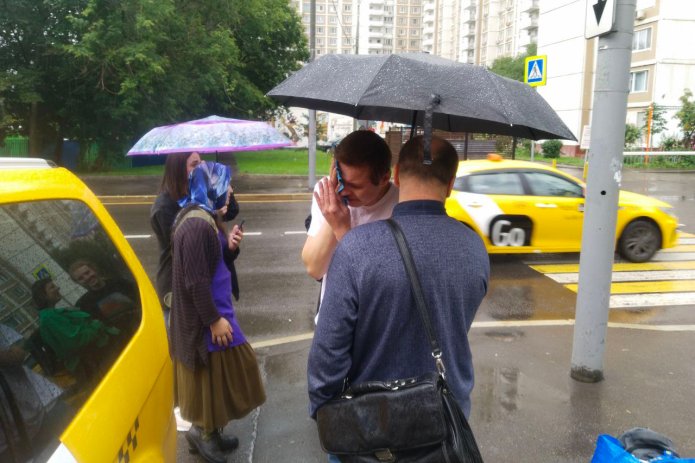
In July, Vladimir Putin signed into law a bill banning gender reassignment: now trans people will not be able to adopt children, they will be denied hormone therapy and gender-affirmative surgeries, and marriages in which one of the spouses changed the gender marker in the documents will be annulled.
Russian law enforcement officers and courts continued to search for «LGBT propaganda» in films, TV series, and social networks. OVD-Info chronicles LGBTQ pressure and censorship associated with the «propaganda» law.
Other Kinds of Pressure on the Civil Society

Pressure on Journalists and Human Rights Activists
Novaya Gazeta journalist Yelena Milashina and lawyer Alexander Nemov were beaten in Chechnya on their way to the announcement of the verdict against Zarema Musayeva, the mother of local activists. Later, the Investigative Committee announced the initiation of two criminal cases against the attackers, but the attackers themselves were not found.
Pressure on Politicians and Activists
In several regions, law enforcement officers conducted new searches in the homes of Navalny’s allies. One of those people is Antonin Omariev who was later arrested because he allegedly resisted the police during the investigation. Two people from Moscow, Ivan Trofimov and Alina Olekhnovich, were placed under house arrest for their alleged connections to Navalny.
The politician himself was once again placed into the punishment isolation cell. He also received 20 years in prison for establishing an extremist group. Vladimir Ostanin, an ex-coordinator of Navalny Headquarters in Barnaul, was sentenced to 9 years in prison on a similar charge.
The home of Alexey Kolegov, a Russian activist who is considered to be the press secretary of The Nationalist Movement, was searched, as well as the Pskovian branch of the Yabloko party, a liberal political party in Russia. Valery Denisenko, a candidate for a municipal council in New Moscow, was arrested for 15 days.
A defendant in the Vesna case, Yan Ksenzhepolsky, said that law enforcement officers were trying to recruit him. An activist of the «Left Resistance» movement, Darya Polyudova, went on a hunger strike after being sentenced to 9 years in prison.
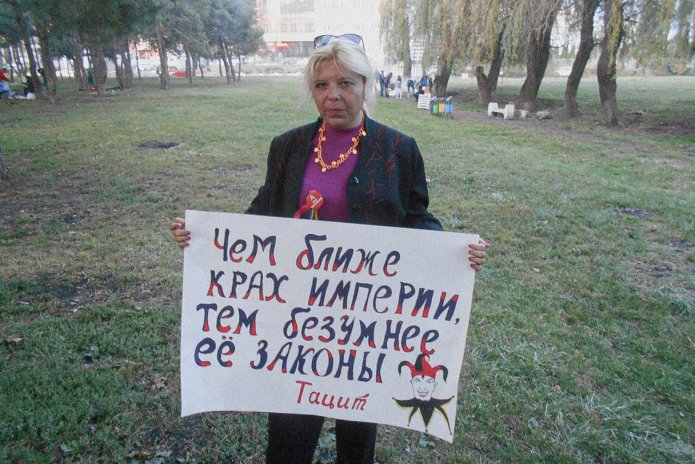
Deputy mayor of Novosibirsk Artyom Skatov was fined 30 thousand rubles in a case of libel against a United Russia member.
Pressure on Relatives
Mother of Chechen activists, Zarema Musayeva, was sentenced to 5.5 years in a minimum security prison for fraud and committing violence against a police officer. In winter 2022, she was forcibly driven out of Nizhny Novgorod to Chechnya, where she was taken into custody. Her health has seriously deteriorated while in detention.
The family of a former head of the Serpukhovo district of the Greater Moscow region Alexander Shestun, who was sentenced to 15.5 years in prison, was evicted from their only place of residence. The Insider journalist Marfa Smirnova complained about receiving threats from anonymous sources monitoring her family members.
Forbidden Organizations
In July, reports came out that a criminal case was opened against activist Abubakar Yangulbaev for organizing the activities of an extremist organization due to his participation in the streams of the Chechen opposition channel 1ADAT.
Law enforcement also initiated a criminal case against ten people on suspicion of their involvement in the Tabligi Dzhamaat religious organization. New criminal cases were opened against Jehovah’s Witnesses from Primorsky Krai and Tver. Their fellow believers in Moscow were sentenced to real prison terms; a suspended sentence was given in Kemerovo; and financial penalties in Karelia.
A court in the Bryansk region sentenced five local residents to real prison terms due to their alleged ties to the Citizens of the USSR, . In Ufa, three defendants in the Hisb ut-Tahrir case were given sentences ranging from 11 to 16 years in prison.
Repressions on the Territory of the Annexed Crimea
At least 14 people were detained at the building of Crimea’s Supreme Court while the court was hearing a case on sabotage of a gas pipeline. Among the detained are journalists, the defendants’ relatives, and activists. They were all sentenced to fines and administrative arrests.
A case was opened against a resident of the peninsula, Dmitry Kozli, for discrediting the Russian army. Relatives of another defendant in an «antiwar case» from Crimea — artist Bogdan Ziza — said that his health had deteriorated after going on a hunger strike. In June, Ziza was sentenced to 15 years of imprisonment. According to the FSB, he poured yellow and blue paint on the facade of the city administration building of Yevpatoria and threw a Molotov cocktail through a window, though the flammable substance went out in the process and no fire occurred.



